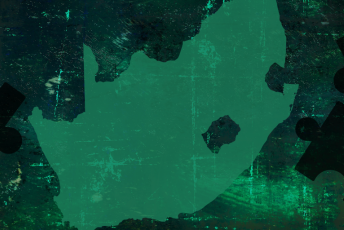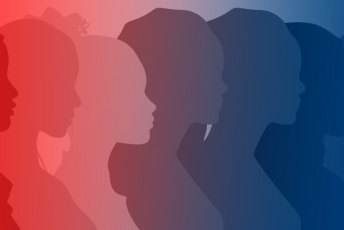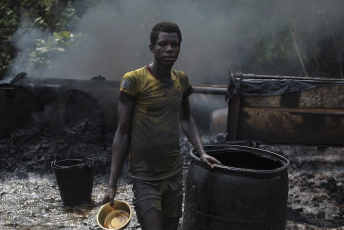‘The marabout [Quranic teacher] promised my father that he would take care of me and teach me Quran. But [when] we reached Senegal, he forced me to beg on [the] street. I must bring him $1 every day. He used to beat me severely when I failed to get that amount.’
This is the story of Alaasane, a former victim of child trafficking found at the Friends of Children Association (AMIC) office in Gabu, east Guinea-Bissau.
Families like that of Alassane entrust their children to Quranic teachers who are meant to instil the teachings of the Quran and Islamic values in their pupils. This has always been a socially accepted practice, but over the past decade Quranic teachers have increasingly been linked to child trafficking for forced begging.
Criminal networks exploit this practice and profit from the vulnerability of families, because of poverty, to develop a parallel economy, preying on children to make money. The eastern regions of Gabu and Bafatá are Guinea-Bissau’s main child trafficking centres.
According to the United Nations Office on Drugs and Crime (UNDOC), children’s forced begging in Senegal generates 5 billion CFA ($8 million) annually. Quranic teachers known as marabouts use different techniques to recruit new children.
During religious ceremonies in Guinea-Bissau, they bring two or three students from Senegal, whom they prepare well to recite Quranic verses. Once the children perform successfully in front of the audience, the marabouts offer parents free quality Islamic education for their children in Senegal.
The parents generally accept without question.
Parents also often consider the departure of their children from the family home a blessing, as it’s fewer mouths to feed, and they believe their children will return having memorised the Quran.
Some marabouts send their older students to villages to recruit for them. Like the marabouts, these intermediaries use false promises to convince the children to follow them to Senegal.
A 14-year-old trafficking victim from Guinea-Bissau found in a reception centre for vulnerable children in Dakar told ENACT: ‘The young marabout came to our house and showed me a picture of a pretty house. Then he told me if I agree to go with him to Senegal, it is in this beautiful villa that I will live and learn the Quran.’
Before, traffickers used official routes to transport their victims to Senegal. But since the tightening of controls on both sides of the border in 2016, traffickers have changed their strategies to circumvent the plans of the Guinea-Bissau and Senegalese authorities.
But given the porosity of the border and criminal networks’ knowledge of the border areas, criminals use secondary routes to bring their victims into Senegal. The most used routes by traffickers are the Bafata-Cambadjou-Salikégné and the Gabu-Pirada Sare Bakar axes. ENACT discovered that some child traffickers, despite increased surveillance at the borders, still manage to smuggle their victims into Senegal via official routes. Some Senegalese border security officials are lenient towards Guinea-Bissau children as most don’t possess national identification documents.
When traffickers reach the border, they present the victims as their own children. A border police official told ENACT that ‘since they don’t have any identification documents, it’s difficult to verify the veracity [of] their declaration. We therefore let them go, in order to abide by the [Economic Community of West African States] freedom-of-movement rule’.
Women also play a prominent role in child trafficking, ENACT found. To minimise the detection and interception risks at the border, criminals entrust their wives with transporting the victims to Senegal. Criminal networks also reportedly engage women travelling in the same vehicle with them to help them smuggle their victims.
A 13-year-old boy who was trafficked told ENACT: ‘When we arrived a few kilometres before the border with Senegal, the marabout asked some ladies travelling with us to take us with them and to introduce us as their own sons, which they accepted.’
When victims enter Senegal’s southern region of Kolda, some are initiated into the practice of begging and into wolof – the national language of Senegal. Other children are transported directly to big cities. Dakar, Saint-Louis, Mbour and Thies appear to be their main destinations, where they stay in abandoned or unfinished houses.
Trafficked children live in deep emotional misery and are often subjected to sexual abuse by bigger students or to physical abuse when they don’t bring their assigned daily amount.
It’s estimated that a child trafficker in Dakar can make up to 1 500 000 CFA ($2 524.35) from his victims every month, while in Saint-Louis in the north, criminals are said to earn 375 000 CFA ($631.09) monthly. This money is laundered through for example real estate, illegal immigration, the cashew nut business, the charcoal industry and the transport sector.
In response to this crime, both Senegal and Guinea-Bissau ratified the 2000 United Nations Convention against Transnational Organized Crime and its protocols to prevent, suppress and punish human trafficking, especially women and children, in 2003 and 2007 respectively.
They also transposed article 5 of the protocol into their national laws to criminalise child trafficking. In May 2005, Senegal adopted Law 2005-06. Guinea-Bissau passed Law 12/2011 in 2011.
However there are major challenges in enforcing laws against child trafficking in both countries. According to a Tambacounda court judge, this is mainly due to a lack of specialisation of law enforcement staff, and the interference of religious and community leaders in political affairs.
To overcome these challenges, Senegal and Guinea-Bissau should urgently establish formal bilateral cooperation on the matter, and their respective judiciary police should exchange information. Both governments should provide law enforcement staff and border officials with adequate training in detecting and reporting trafficking.
Religious leaders should also be involved in the fight against child trafficking through informing the population through their preachings, either in mosques or on radio. In both Senegal and Guinea-Bissau, religious leaders are considered religious authorities and are usually very influential. Their involvement could help open the eyes of the population.
Mouhamadou Kane - Researcher, ENACT project, ISS







